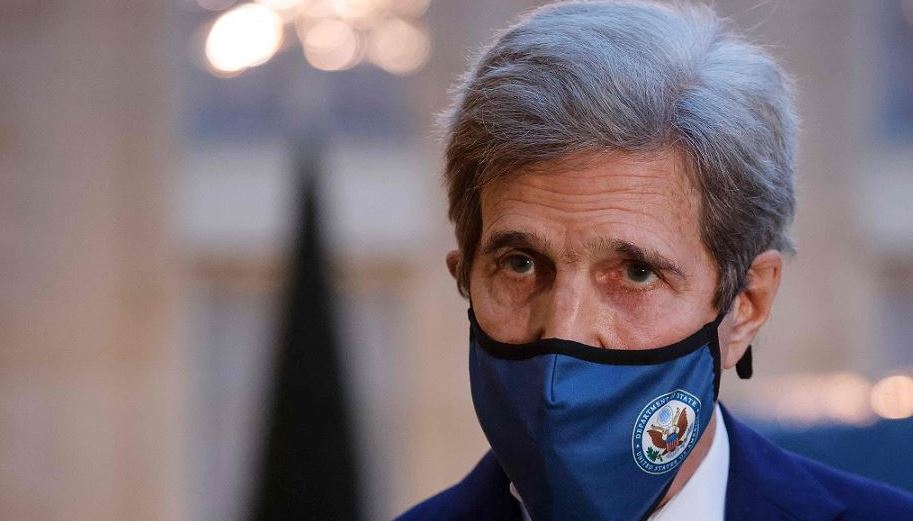
Editor's note: Andrew Korybko is a Moscow-based American political analyst. The article reflects the author's views and not necessarily those of CGTN.
The COVID-19 pandemic taught the international community that it must urgently come together to combat other global threats that could in theory equally affect everyone. For as surprising as it may seem considering the heated disagreements between many nations on various geopolitical and economic topics at the moment, there's plenty of reason for optimism in this respect due to two recent developments that coincide with an upcoming one later this week.
These are Chinese President Xi Jinping's climate change discussions with French President Emmanuel Macron and German Chancellor Angela Merkel on April 16, China's special envoy for climate change affairs Xie Zhenhua's similar talks with U.S. counterpart John Kerry over this week, and the upcoming Leaders Summit on Climate that the U.S. will virtually host from April 22 to 23. During the second event, China and the U.S. have issued a joint statement, affirming their stance on cooperation to address climate crises.
It's important to discuss the larger implications of all of these. For starters, it signifies that the international community's leading members respect the Paris Agreement as the basis upon which to build global cooperation with respect to combating climate change.
In particular, the U.S. isn't letting its preexisting problems with China get in the way of pragmatic cooperation to this end, which testifies to how serious the Biden Administration views this issue unlike his predecessor led by former U.S. President Donald Trump, who withdrew from the pact.
Secondly, positive statements are one thing, but actually accomplishing something tangible is another. It'll remain to be seen what form these countries' cooperation takes in the future, but it's a welcome sign that none of these major players let other issues interfere with their stated desire to work more closely on solving this problem.
The reason for this is likely that their leaderships have realized their responsibility for saving the same planet that everyone occupies, which necessitates prioritizing global interests in this day and age.
Speaking of which, the third implication is that the short-lived revival of nationalist tendencies across the world that was led by Trump seems to have finally passed. Under his lead, the U.S. openly advanced what its leadership subjectively regarded as its own interests at the expense of others'.
Nowadays, however, there appears to have been a widespread awakening whereby world leaders finally realized that the global interest in combating climate change is in the common interest of their own nations too.

John Kerry, the U.S. special envoy for climate change. /VCG
John Kerry, the U.S. special envoy for climate change. /VCG
Building upon this, the fourth implication is that global bodies such as the United Nations will inevitably become more important in the future since they serve as the only practical means for discussing, implementing, and monitoring progress on this and related issues of global concern.
Once again, this stands in contrast to the situation just a year or so ago when many were wondering whether the end of globalization was nigh. Few today, however, would credibly express such fears following the COVID-19 and climate change crises.
The fifth and final significant implication of leading countries' recent commitment to cooperate more closely with China on combating climate change is that the international community has finally concluded that no global issue can be solved without the participation of China.
It's impossible for anyone to "decouple" from China like Trump's America sought to do, just as it's impossible to "contain" the country like some are presently attempting. China is destined to play a key role in solving many of the world's problems.
Looking forward, it would be premature to predict that the disagreements that some countries such as the U.S. have with China will be solved overnight just because they agreed to cooperate on combating climate change.
Nevertheless, their recent climate commitments are still positive developments that could pave the way for closer cooperation on other issues in the future. The hard-fought, centuries-long, historical trend towards international unity is nowadays being driven by global issues like climate change, and it looks to be irreversible.
(If you want to contribute and have specific expertise, please contact us at opinions@cgtn.com.)

